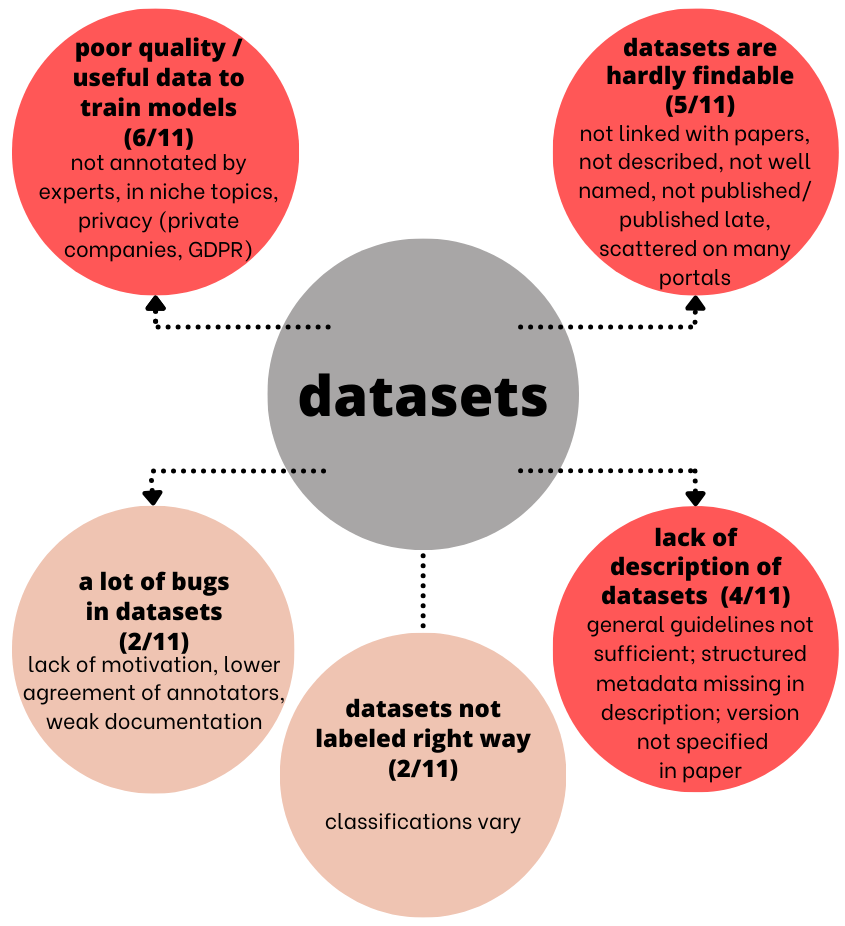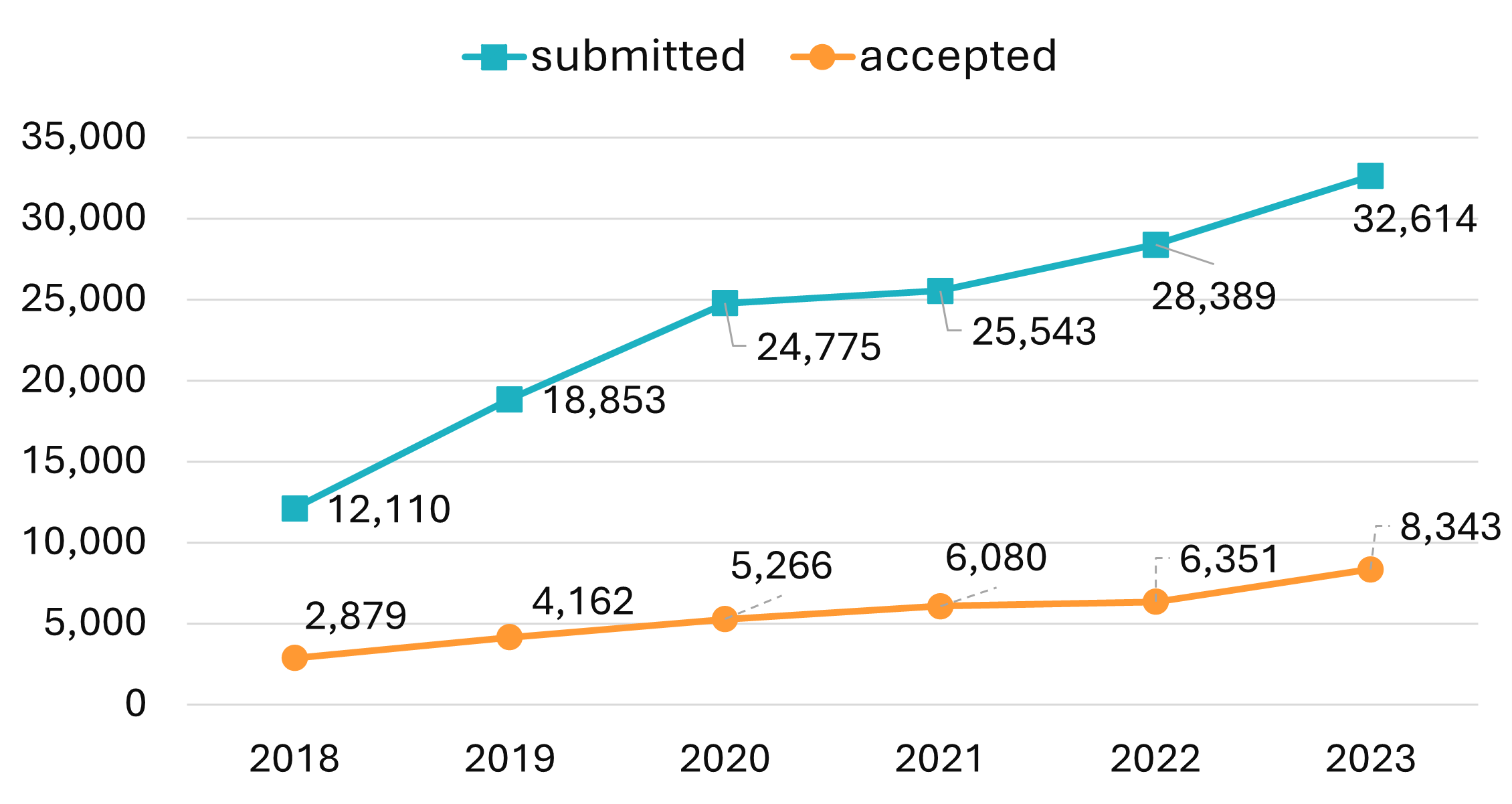AI Research is not Magic, it has to be Reproducible and Responsible: Challenges in the AI field from the Perspective of its PhD Students

0

Sign in to get full access
Overview
- The paper explores the challenges faced by PhD students in the field of AI research from their perspective.
- Key focus areas include the need for reproducibility and responsible AI practices.
- The research methodology involves interviews with AI PhD students to gain their insights.
Plain English Explanation
The paper examines the challenges that PhD students in Artificial Intelligence (AI) research face. It highlights the importance of reproducibility and responsible AI practices from the perspective of these students.
The researchers conducted interviews with AI PhD students to understand their experiences and perspectives on the issues within the field. They wanted to gain insights directly from those working at the forefront of AI research.
The key challenges identified include the need for more transparent and reproducible research methods, as well as a greater focus on the ethical and societal implications of AI systems. PhD students emphasized the importance of moving beyond "magic" or hype in AI and ensuring the research is grounded in solid, replicable principles.
By understanding the perspectives of AI PhD students, the paper aims to shed light on the real-world challenges faced in conducting responsible and impactful AI research.
Technical Explanation
The paper presents a qualitative study exploring the challenges faced by PhD students in the field of AI research. The researchers conducted in-depth interviews with 20 AI PhD students from various universities and backgrounds.
The interviews covered topics such as the students' experiences in conducting AI research, the perceived challenges and obstacles they encountered, and their perspectives on the importance of reproducibility and responsible AI practices.
Key themes that emerged from the interviews include:
-
Reproducibility: PhD students emphasized the need for more transparent and replicable research methods in AI. They expressed concerns about the difficulty in reproducing findings from existing studies, which hinders the field's progress and credibility.
-
Responsible AI: Students highlighted the importance of considering the ethical and societal implications of AI systems, including issues of bias, fairness, and transparency. They argued for a greater focus on responsible AI practices during the research and deployment stages.
-
Hype and Expectations: Many students felt there was a disconnect between the public perception of AI and the realities of the field. They noted the challenge of managing unrealistic expectations and combating the "magic" narrative surrounding AI.
-
Institutional and Funding Pressures: PhD students described the pressures they face from their institutions and funding sources, which can sometimes prioritize novel and attention-grabbing results over rigorous, reproducible research.
The findings from this study provide valuable insights into the lived experiences and perspectives of AI PhD students, shedding light on the challenges they face in conducting high-quality, responsible, and impactful research.
Critical Analysis
The paper offers a unique and valuable perspective by highlighting the challenges faced by AI PhD students, who are at the forefront of the field. By directly engaging with this group, the researchers provide a first-hand account of the issues that need to be addressed in order to improve the overall quality and integrity of AI research.
One strength of the study is its focus on the importance of reproducibility and responsible AI practices. These are crucial elements for the long-term progress and societal impact of the field, and it is encouraging to see PhD students emphasizing their importance.
However, the paper could have delved deeper into some of the specific barriers and potential solutions to these challenges. For example, it could have explored in more detail the institutional and funding pressures that PhD students face, and how these might be addressed through policy changes or shifts in academic incentive structures.
Additionally, the paper could have considered the role of PhD supervisors and mentors in either perpetuating or helping to mitigate the challenges faced by their students. The influence of these senior researchers on the younger generation's perspectives and practices is an important factor that could have been explored further.
Overall, the paper provides a valuable contribution by elevating the voices of AI PhD students and highlighting the need for more responsible and replicable research practices in the field of AI.
Conclusion
This paper offers a unique perspective on the challenges facing the AI research community, drawing directly from the experiences and insights of PhD students working at the forefront of the field.
The key takeaways highlight the critical need for more transparent, reproducible, and responsible AI research practices. PhD students emphasized the importance of moving beyond the "magic" narrative and ensuring that AI systems are developed with a strong grounding in ethical and societal considerations.
By understanding the perspectives of these young researchers, the paper provides valuable insights that can help shape the future direction of the AI field. Addressing the challenges identified, such as institutional pressures and the lack of focus on reproducibility, will be essential for fostering high-quality, impactful, and trustworthy AI research that benefits society as a whole.
This summary was produced with help from an AI and may contain inaccuracies - check out the links to read the original source documents!
Related Papers


0
AI Research is not Magic, it has to be Reproducible and Responsible: Challenges in the AI field from the Perspective of its PhD Students
Andrea Hrckova, Jennifer Renoux, Rafael Tolosana Calasanz, Daniela Chuda, Martin Tamajka, Jakub Simko
With the goal of uncovering the challenges faced by European AI students during their research endeavors, we surveyed 28 AI doctoral candidates from 13 European countries. The outcomes underscore challenges in three key areas: (1) the findability and quality of AI resources such as datasets, models, and experiments; (2) the difficulties in replicating the experiments in AI papers; (3) and the lack of trustworthiness and interdisciplinarity. From our findings, it appears that although early stage AI researchers generally tend to share their AI resources, they lack motivation or knowledge to engage more in dataset and code preparation and curation, and ethical assessments, and are not used to cooperate with well-versed experts in application domains. Furthermore, we examine existing practices in data governance and reproducibility both in computer science and in artificial intelligence. For instance, only a minority of venues actively promote reproducibility initiatives such as reproducibility evaluations. Critically, there is need for immediate adoption of responsible and reproducible AI research practices, crucial for society at large, and essential for the AI research community in particular. This paper proposes a combination of social and technical recommendations to overcome the identified challenges. Socially, we propose the general adoption of reproducibility initiatives in AI conferences and journals, as well as improved interdisciplinary collaboration, especially in data governance practices. On the technical front, we call for enhanced tools to better support versioning control of datasets and code, and a computing infrastructure that facilitates the sharing and discovery of AI resources, as well as the sharing, execution, and verification of experiments.
Read more8/14/2024
📊

0
Integrating measures of replicability into scholarly search: Challenges and opportunities
Chuhao Wu, Tatiana Chakravorti, John Carroll, Sarah Rajtmajer
Challenges to reproducibility and replicability have gained widespread attention, driven by large replication projects with lukewarm success rates. A nascent work has emerged developing algorithms to estimate the replicability of published findings. The current study explores ways in which AI-enabled signals of confidence in research might be integrated into the literature search. We interview 17 PhD researchers about their current processes for literature search and ask them to provide feedback on a replicability estimation tool. Our findings suggest that participants tend to confuse replicability with generalizability and related concepts. Information about replicability can support researchers throughout the research design processes. However, the use of AI estimation is debatable due to the lack of explainability and transparency. The ethical implications of AI-enabled confidence assessment must be further studied before such tools could be widely accepted. We discuss implications for the design of technological tools to support scholarly activities and advance replicability.
Read more5/6/2024


0
What is Reproducibility in Artificial Intelligence and Machine Learning Research?
Abhyuday Desai, Mohamed Abdelhamid, Nakul R. Padalkar
In the rapidly evolving fields of Artificial Intelligence (AI) and Machine Learning (ML), the reproducibility crisis underscores the urgent need for clear validation methodologies to maintain scientific integrity and encourage advancement. The crisis is compounded by the prevalent confusion over validation terminology. Responding to this challenge, we introduce a validation framework that clarifies the roles and definitions of key validation efforts: repeatability, dependent and independent reproducibility, and direct and conceptual replicability. This structured framework aims to provide AI/ML researchers with the necessary clarity on these essential concepts, facilitating the appropriate design, conduct, and interpretation of validation studies. By articulating the nuances and specific roles of each type of validation study, we hope to contribute to a more informed and methodical approach to addressing the challenges of reproducibility, thereby supporting the community's efforts to enhance the reliability and trustworthiness of its research findings.
Read more7/16/2024


0
GeoAI Reproducibility and Replicability: a computational and spatial perspective
Wenwen Li, Chia-Yu Hsu, Sizhe Wang, Peter Kedron
GeoAI has emerged as an exciting interdisciplinary research area that combines spatial theories and data with cutting-edge AI models to address geospatial problems in a novel, data-driven manner. While GeoAI research has flourished in the GIScience literature, its reproducibility and replicability (R&R), fundamental principles that determine the reusability, reliability, and scientific rigor of research findings, have rarely been discussed. This paper aims to provide an in-depth analysis of this topic from both computational and spatial perspectives. We first categorize the major goals for reproducing GeoAI research, namely, validation (repeatability), learning and adapting the method for solving a similar or new problem (reproducibility), and examining the generalizability of the research findings (replicability). Each of these goals requires different levels of understanding of GeoAI, as well as different methods to ensure its success. We then discuss the factors that may cause the lack of R&R in GeoAI research, with an emphasis on (1) the selection and use of training data; (2) the uncertainty that resides in the GeoAI model design, training, deployment, and inference processes; and more importantly (3) the inherent spatial heterogeneity of geospatial data and processes. We use a deep learning-based image analysis task as an example to demonstrate the results' uncertainty and spatial variance caused by different factors. The findings reiterate the importance of knowledge sharing, as well as the generation of a replicability map that incorporates spatial autocorrelation and spatial heterogeneity into consideration in quantifying the spatial replicability of GeoAI research.
Read more4/23/2024